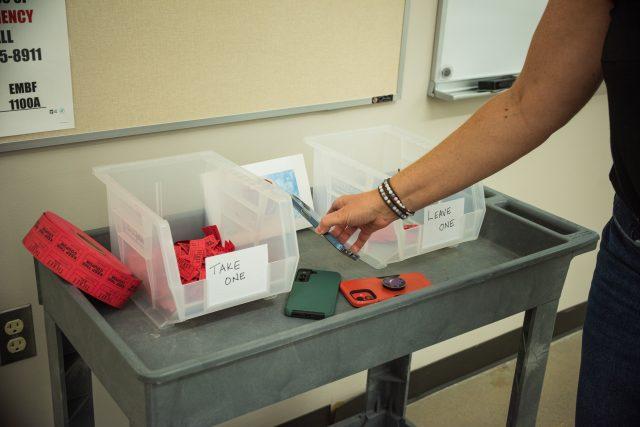XAVIER BOATNER
campus editor
xavier.boatner@my.tccd.edu
Governor Greg Abbott’s Texas National Guard intelligence wing has been disbanded following an incident involving a popular messaging app.
A handful of intelligence wing officials had taken part in an undercover surveillance mission to spy on migrants in Mexico through the use of “WhatsApp,” a free text, voice and video chat app. TCC campus goers shed some of their concerns and knowledge regarding privacy violations and what they could mean for the state.
According to the Texas Tribune, the reason the intelligence wing was disbanded was because National Guard leaders “believed it violated long-standing rules against state-run spy operations.” The Tribune also stated that “another team from the intelligence directorate (board of directors) allegedly sent classified FBI intelligence to their Texas National Guard colleagues in an apparent violation of federal secrecy laws.”
NW Campus adjunct government professor Vincent Giardino said regardless of what the platform in question is, whether digital or not, state officials should be required to follow a certain set of guidelines in order to prevent any violations of privacy as well as avoid law breaking.
“Whether it is a text message or a hand-written letter, the Constitutions and laws of the United States and Texas require officers to follow specific rules to obtain and use private information,” Giardino said. “Violating these laws means they cannot use the evidence in court. Officers cannot break the law in order to enforce the law.”
NE Campus student Khari Pollum said the operation was a cause for concern and felt as if the Republican Party’s influence was to blame. He also found that the way the intelligence officials went about approaching their surveillance operation to be a violation of human rights as well as a threat to the freedom of the people.
“As an institution, the Republican Party is comfortable operating in ways that blatantly appeal to fascism, in a manner everyone should be aware of and concerned about,” Pollum said. “If they can justify violating a group of people’s rights and privacy with their politics, and get away with doing so, not a single group of people can claim they live in a free land.”
Giardino shed some further light on what sort of precautions law enforcement should and should not do if something similar to the WhatsApp surveillance operation were to occur again in the future. He explains what he believes should be more common knowledge in the hope that students will be able to use the advice to steer clear of potential privacy violations.
“During an investigation, police officers do not need permission to access open social media accounts and use anything the public can see to build their case,” Giardino said. “But for everything else hidden from the public, such as information about private messages or log-in information, police or prosecutors must justify their need for the information to get a warrant or a grand jury subpoena (a written order that requires a person to attend court) and force the company to provide the hidden data. At the state-level, this warrant can only be obtained from an elected judge.”







































